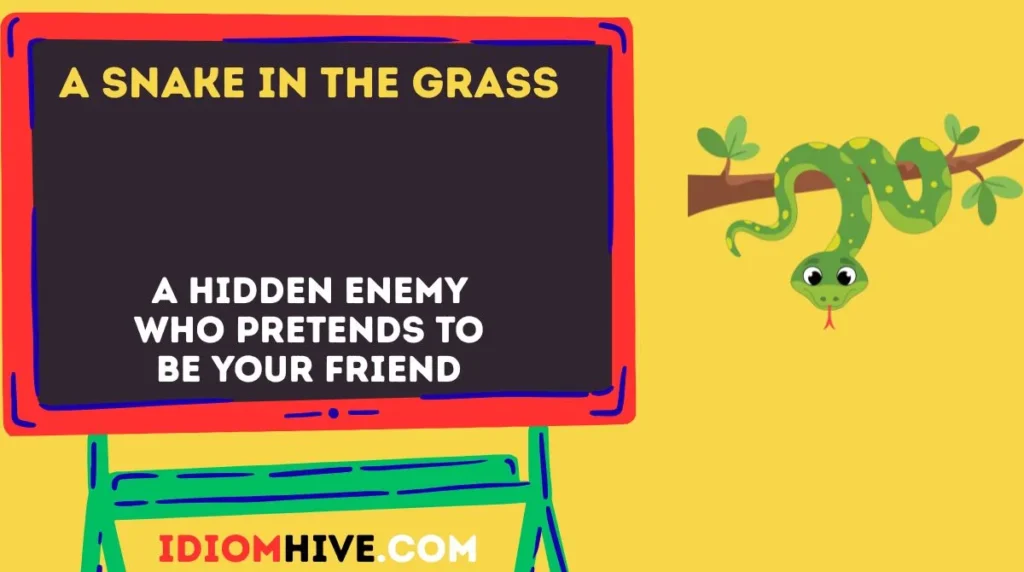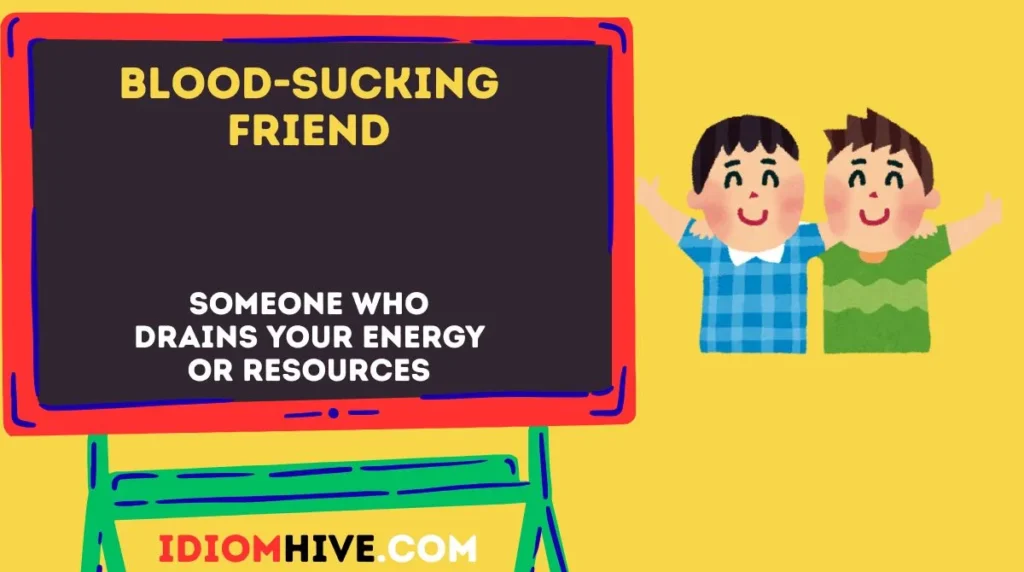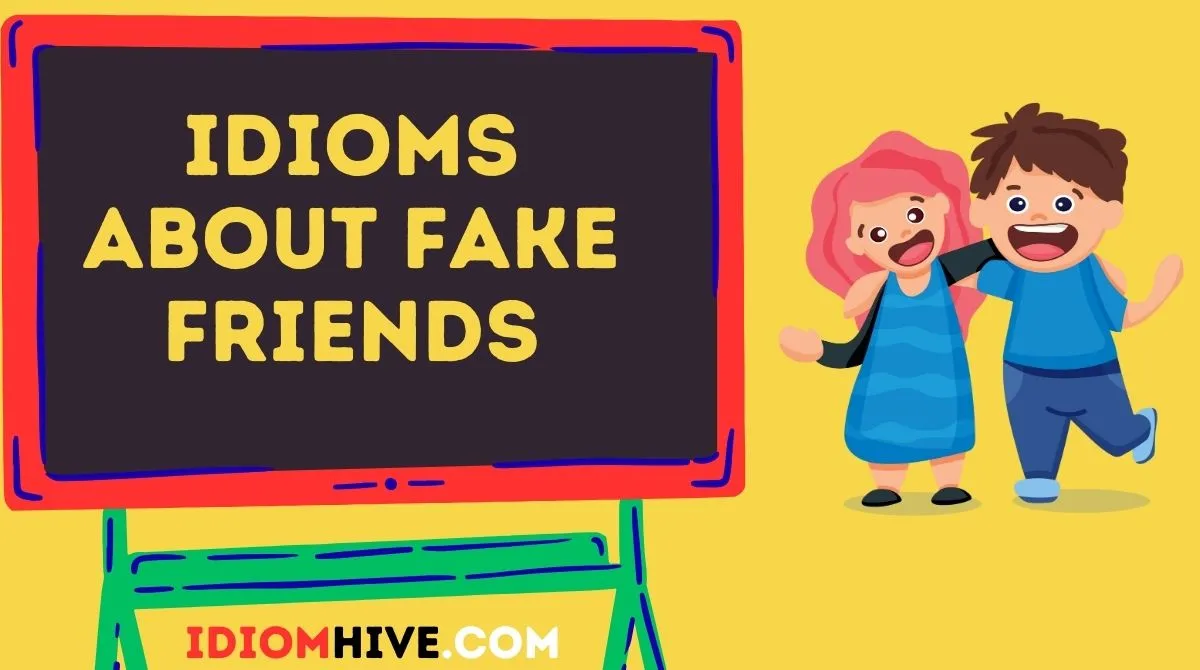Friendship is one of the most valued bonds in life, but not all friends are true friends. Some people pretend to be loyal and caring but are dishonest, jealous, or only around when they need something.
English has a rich collection of idioms that describe such people — “fake friends.” Idioms are expressions whose meanings go beyond the literal words. They add color, emotion, and wisdom to everyday language.
Learning idioms about fake friends is very useful because they help you express your feelings more clearly. Instead of simply saying “He is not a good friend,” you can use a vivid idiom like “He stabbed me in the back.” Such phrases make conversations powerful, natural, and memorable.
In this article, you’ll discover over 30 idioms about fake friends, grouped into different themes. Each idiom comes with meaning, example, alternatives, and a short reflection to help you use it confidently.
Did You Know?
The phrase “a wolf in sheep’s clothing” comes from one of Aesop’s fables written over 2,500 years ago! It describes someone who looks friendly and innocent on the outside but is actually dangerous or deceitful on the inside. This old idiom is still widely used today to talk about fake friends.
Idioms About Fake Friends
Idioms About Betrayal
Stab Someone in the Back
Meaning: To betray someone secretly.
Example: I trusted Sarah, but she stabbed me in the back by spreading my secrets.
Alternative: Double-cross.
Reflection: Very common in daily conversations when someone feels betrayed.
A Snake in the Grass

Meaning: A hidden enemy who pretends to be your friend.
Example: He acts nice, but he’s a snake in the grass waiting for a chance to hurt you.
Alternative: Two-faced person.
Reflection: Informal, often used in warnings about untrustworthy people.
Sell Someone Out
Meaning: To betray a friend for personal gain.
Example: He sold me out to the boss just to look good.
Alternative: Rat someone out.
Reflection: Common in workplace or friendship discussions.
Throw Someone Under the Bus
Meaning: To sacrifice a friend to save yourself.
Example: During the meeting, she threw me under the bus to escape blame.
Alternative: Shift the blame.
Reflection: Popular in professional or political contexts.
Turn Coat
Meaning: A person who changes loyalty for selfish reasons.
Example: He was with us yesterday, but today he’s supporting the other team — a real turn coat.
Alternative: Traitor.
Reflection: Slightly formal, used in both politics and personal life.
Idioms About Pretending
Two-Faced
Meaning: Someone who acts friendly but speaks badly behind your back.
Example: Don’t trust him; he’s two-faced.
Alternative: Hypocrite.
Reflection: Everyday phrase, informal, very common.
Wolf in Sheep’s Clothing
Meaning: A dangerous person who hides behind a kind appearance.
Example: He may seem charming, but he’s a wolf in sheep’s clothing.
Alternative: Hidden enemy.
Reflection: Used in both literature and normal speech.
Fair-Weather Friend
Meaning: A friend who is only there in good times.
Example: She’s a fair-weather friend — she disappeared when I lost my job.
Alternative: Seasonal friend.
Reflection: Often used in personal reflections about friendships.
Put on a Mask
Meaning: To pretend to be someone you’re not.
Example: He’s always putting on a mask to impress people.
Alternative: Hide true colors.
Reflection: Informal, emotional conversations.
Play Both Sides
Meaning: To pretend to support everyone, but not be loyal to anyone.
Example: He plays both sides, so you never know his real opinion.
Alternative: Sit on the fence.
Reflection: Workplace, politics, and personal relationships.
Idioms About Using Others
Gold Digger

Meaning: A person who makes friends only for money.
Example: He’s not in love; he’s just a gold digger after her wealth.
Alternative: Money-chaser.
Reflection: Informal, often used in relationships.
Ride Someone’s Coattails
Meaning: To benefit from someone else’s success.
Example: He’s just riding his boss’s coattails to get promoted.
Alternative: Take advantage of.
Reflection: Common in workplace talk.
Take Someone for Granted
Meaning: To use someone without appreciating them.
Example: She always takes me for granted and never values my help.
Alternative: Use and abuse.
Reflection: Very common in personal friendships.
Use Someone as a Stepping Stone
Meaning: To use someone to reach your goals.
Example: He used his classmates as stepping stones to climb higher.
Alternative: Exploit someone.
Reflection: Often heard in career-related contexts.
Hang Around for Benefits
Meaning: To stay close only when there’s something to gain.
Example: He’s just hanging around for benefits, not real friendship.
Alternative: Opportunist.
Reflection: Informal, used in gossip or personal complaints.
Idioms About Fake Behavior
Crocodile Tears
Meaning: Fake or insincere display of sadness.
Example: She cried crocodile tears at the party, but everyone knew she didn’t care.
Alternative: False sympathy.
Reflection: Widely used in daily life.
False Friend
Meaning: Someone who pretends to be your friend but isn’t.
Example: Beware of false friends who smile in your face but gossip behind your back.
Alternative: Fake companion.
Reflection: General and simple, useful for learners.
Butter Someone Up
Meaning: To flatter someone for personal advantage.
Example: He’s just buttering you up because he needs a favor.
Alternative: Sweet talk.
Reflection: Everyday English, informal.
Sugar-Coated Words
Meaning: Words that sound sweet but hide the truth.
Example: Her sugar-coated words fooled many people.
Alternative: Honeyed words.
Reflection: Often found in literature and speeches.
Smoke and Mirrors
Meaning: Tricks or lies to hide the truth.
Example: His friendship is just smoke and mirrors — nothing real.
Alternative: Illusion.
Reflection: Used in both formal and casual contexts.
More Idioms About Fake Friends
Talk Behind Someone’s Back
Meaning: To gossip about someone secretly.
Example: I hate people who talk behind my back instead of being honest.
Alternative: Backbite.
Reflection: Very common in daily life.
Keep Your Friends Close, Enemies Closer
Meaning: Stay aware of fake friends by keeping them near.
Example: He keeps his friends close, but enemies closer to watch their moves.
Alternative: Know your enemy.
Reflection: Famous in strategy and politics.
Blood-Sucking Friend

Meaning: Someone who drains your energy or resources.
Example: She’s a blood-sucking friend who only calls when she needs money.
Alternative: Energy vampire.
Reflection: Informal, often said in frustration.
With Friends Like These, Who Needs Enemies?
Meaning: Fake friends are worse than enemies.
Example: She betrayed me again — with friends like these, who needs enemies?
Alternative: Better alone than with bad company.
Reflection: Often used humorously or bitterly.
Devil in Disguise
Meaning: A person who looks kind but is harmful.
Example: He’s a devil in disguise, pretending to care but plotting against you.
Alternative: Hidden evil.
Reflection: Common in emotional situations.
How to Use These Idioms in Daily Life
- Speaking: Use these idioms in conversations to make your speech more expressive. For example, instead of saying “My colleague betrayed me,” you can say “He threw me under the bus.”
- Writing: In essays, blogs, or even social media posts, idioms can make your writing more powerful and engaging.
- Professional Use: Some idioms, like “throw under the bus” or “ride coattails,” are often used in workplace settings, making your English sound natural in meetings and presentations.
Common Mistakes Learners Make With Idioms
- Wrong Context
❌ He stabbed me in the back because he beat me in a game.
✅ He stabbed me in the back by telling my secret to others.
(Idioms should fit betrayal, not competition.) - Literal Meaning
❌ She cried crocodile tears at the zoo.
✅ She cried crocodile tears after losing, but she didn’t really care.
(Idioms are not about animals literally.) - Mixing Idioms
❌ He’s a snake in the bus.
✅ He’s a snake in the grass.
(Always use the full correct idiom, not a mix.)
FAQs
1. What is a fake friend in simple words?
A fake friend is someone who pretends to be your friend but doesn’t truly care about you. They may gossip, betray, or use you for personal benefit.
2. Can I use idioms about fake friends in professional writing?
Yes, but carefully. Phrases like “throw under the bus” or “ride coattails” are fine in business writing, but very informal idioms like “blood-sucking friend” are best for casual use.
3. Why are idioms about fake friends important to learn?
They help you express emotions more clearly and naturally. Instead of just saying “I don’t trust him,” you can use “He’s two-faced.”
4. Are idioms about fake friends universal?
The idea of fake friends exists everywhere, but the idioms may be different in each language. English idioms are widely understood in global conversations.
5. How can I remember idioms better?
Practice them in sentences about your real life, use them in daily conversations, and connect them with stories or situations.
Conclusion
Fake friends can be more harmful than open enemies, and the English language has given us powerful idioms to describe them.
From “a snake in the grass” to “crocodile tears,” these expressions carry centuries of wisdom and make your conversations more colorful.
By practicing these idioms, you’ll not only improve your English but also find the perfect words to describe real-life situations. So next time you spot a two-faced person, you’ll know exactly what to say!










